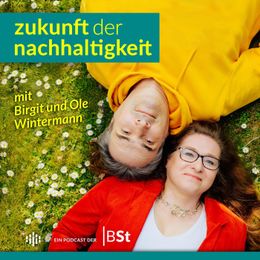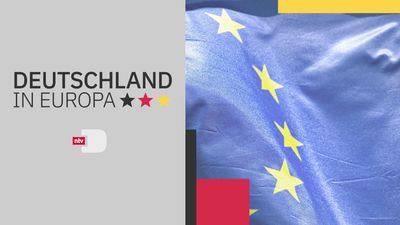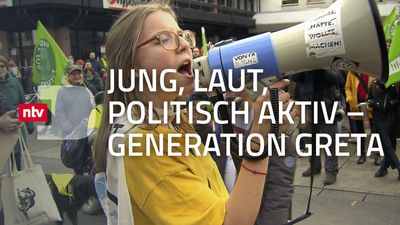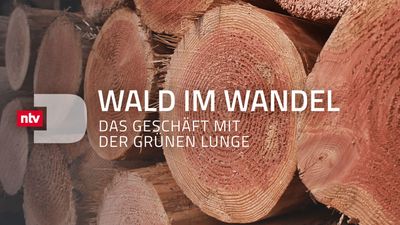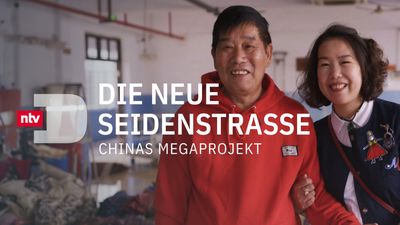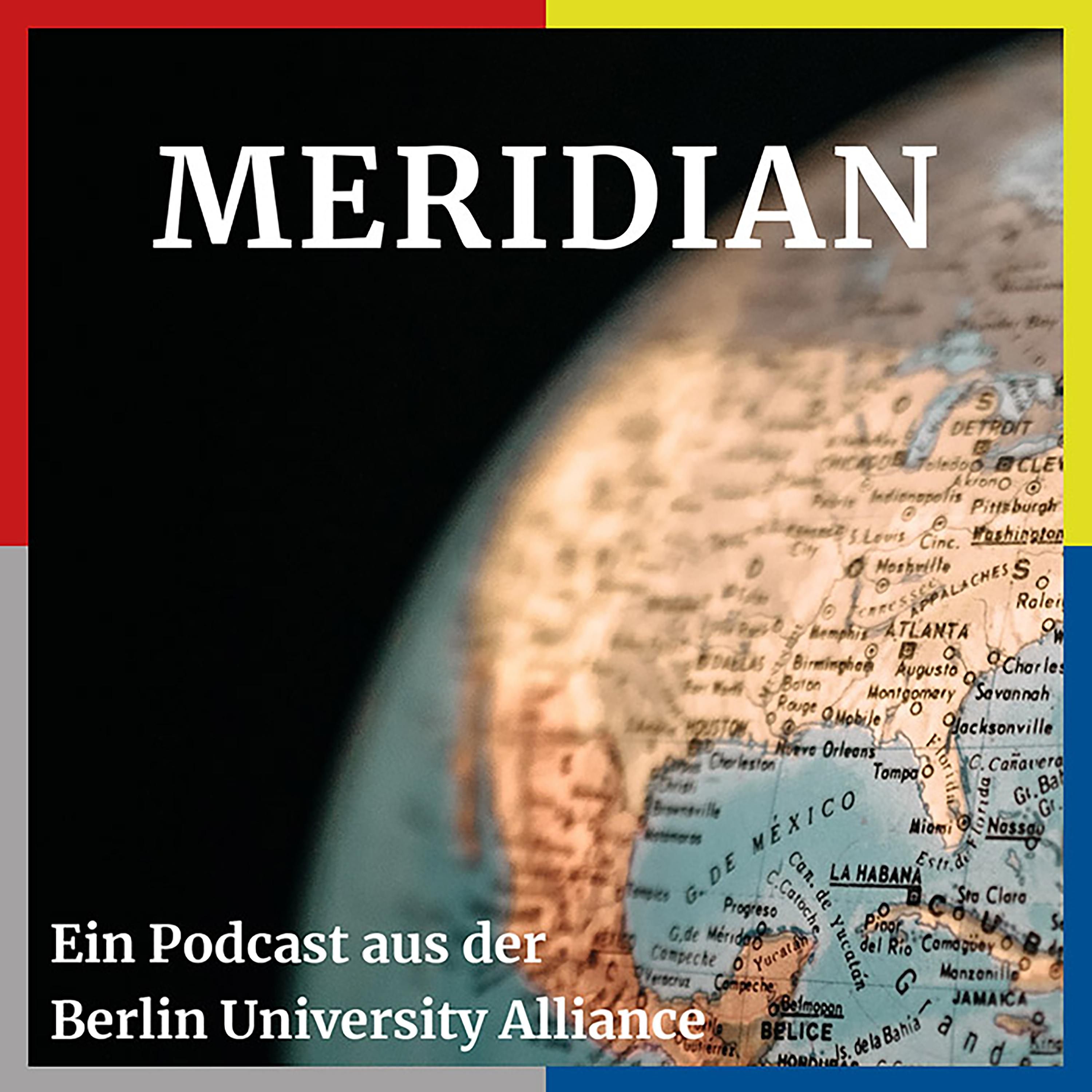
Meridian – Der Wissenschaftspodcast des Berlin Center for Global Engagement
Ist Wissenschaft wirklich global? Reduzieren wir sie nicht zu oft auf einzelne Standorte wie Harvard und Cambridge? In diesem Podcast erzählenForscherinnen und Forscher von ihrer Arbeit zwischen verschiedenen Welten, von Berlin bis Dakar, von Rio de Janeiro bis Manila. WelchePerspektiven eröffnen Grenzüberschreitungen? Welche Herausforderungen bringen sie mit sich? Meridian – Der Wissenschaftspodcast des Berlin Center for Global Engagement (BCGE) gibt Einblicke in spannende Biografien zwischen verschiedenen Breitengraden. Das BCGE ist ein Zentrum der Berlin University Alliance und wird im Rahmen der Exzellenzstrategie von Bund und Ländern gefördert. Weitere Infos unter www.berlin-university-alliance.de.
Alle Folgen
Meridian - #20 - "The Invisible Work of Women: Gender, Labor and Sustainability in Ghana and Worldwide" – with Prof. Angela Dziedzom Akorsu
Around the world, women perform the essential labor that sustains societies — yet this work is too often undervalued or made invisible. From unpaid care work to precarious jobs in the informal economy and emerging roles shaped by digital platforms, women’s experiences are frequently marginalized, even in systems that rely on their contributions. In Ghana and across Africa, these dynamics are deeply rooted in colonial histories and shaped by global capitalism. While the Sustainable Development Goals claim to advance gender equality, they often overlook the structural power imbalances that uphold gendered divisions of labor.In this episode, journalist Kevin Caners speaks with Professor Angela Dziedzom Akorsu, an associate professor of labor and gender studies at the University of Cape Coast, Ghana, and 2025 DiGENet Audre Lorde Visiting Professor at the Berlin University Alliance.Together, they explore urgent questions: How does the global division of labor shape gendered work structures in Ghana? What parallels or contrasts emerge when compared to Europe — and what might Berlin learn from them? How can African feminist perspectives challenge and reshape global debates on development, sustainability, and knowledge production? What does fair and equitable research collaboration between Africa and Europe truly require?Professor Akorsu’s career spans international academic work and interdisciplinary inquiry. She earned her BA in Education from the University of Cape Coast (1998), a Master’s in Development Studies from the Institute of Social Studies in the Netherlands (2001), and a PhD from the University of Manchester, UK (2010). Since 2022, she has served as Dean of the School for Development Studies at the University of Cape Coast. Her DiGENet Audre Lorde Visiting Professorship at the Berlin University Alliance, hosted by Freie Universität Berlin, is grounded in a commitment to amplifying the perspectives of those often excluded from mainstream development narratives. The Audre Lorde Visiting Professorship was established by the Diversity and Gender Equality Network (DiGENet) of the Berlin University Alliance. If you would like to learn more about the Africa Charter, listen to Meridian Episode 17: The Africa Charta: A roadmap for universities towards equitable research partnerships – with Isabella Aboderin.Angela Dziedzom Akorsu is an associate professor of labor and gender studies at the University of Cape Coast, Ghana. She is the DiGENet Audre Lorde visiting professor 2025 at the Berlin University Alliance, hosted by Freie Universität Berlin.

Meridian - #19 - „The Democratization of Knowledge. Open Science from Latin America to the World“ - with Prof. Fernanda Beigel
Open Science is a movement focused on how knowledge is produced and shared, aiming to dismantle the long-standing barriers that have kept academic research behind paywalls and limited to institutional elites. It calls for greater transparency, inclusivity, and accessibility in order to diversify global knowledge systems. Few countries have embraced Open Science as strongly as Latin America. What is the current state of the Open Science movement in this region and what risks of Open Science can be observed? How can Open Science contribute to adressing global challenges? And why is it essential to diversify how knowledge is created and shared?In this episode, journalist Kevin Caners explores these questions and more with Professor Fernanda Beigel. Fernanda Beigel is a Principal Researcher at Argentina’s National Council of Scientific and Technical Research (CONICET), a Head Professor at the National University of Cuyo (UNCuyo), and the Director of the Research Center on the Circulation of Knowledge (CECIC). She chaired Argentina’s National Committee for Open Science from 2020 to 2023 and led UNESCO’s Advisory Committee for Open Science from 2020 to 2021. She is Principal Investigator of the project Open Science in the Social Sciences and Humanities in Argentina and Germany: Opportunities, Challenges, and Contestations, in collaboration with the Ibero-Amerikanisches Institut and the Berlin University Alliance. Currently, she is a Fellow for Open Science at the Berlin University Alliance, in the Einstein Center for Digital Future. “Projects that are funded publicly should be open to future generations or other people not to collect the same thing. The circulation of knowledge is going to be reduced and concentrated and more asymmetrical, more unequal,” states Fernanda Beigel. Professor Fernanda Beigel is a sociologist based at CONICET and the National University of Cuyo, in Mendoza-Argentina and former chair of the UNESCO Advisory Committee for Open Science.

Meridian - #18 - Giving Birth in Brazil: Gender and Politics in Global Health - with Prof. Simone Diniz
Across the world, health care systems are shaped by inequalities—both in access and in how gender, race, and social class influence medical treatment. Nowhere is this more evident than in maternal health care. From childcare practices to reproductive rights, women's experiences in health care are determined by structures, policies, and interests that often fail to prioritize their needs. “Medicine often starts out from the incorrection of the female body and the belief that women bodies are inferior to technology”, states Simon Diniz. What determines the structures of health care systems? How have gender, race, and class shaped their development? What changes are necessary to better address the needs of women and societies? And what is the role of scientists in this context? Brazil provides a particularly compelling case to explore these questions, as its history of health care system development—situated at the intersection of activism, research, and politics—is well-documented.Professor Simone Diniz is a distinguished public health expert and advocate for women's health, gender equality, and social justice. A medical doctor by training and a full professor at the University of São Paulo (Brazil), she specializes in preventive medicine, maternal health, sexual and reproductive rights, data science, and equity in healthcare systems. Her extensive work bridges academia, policy-making and activism, including two decades with the São Paulo Feminist Collective on Health and Sexuality. „Evidence is not enough to change reality,“ states Simone Diniz. Professor Simone Diniz is a medical doctor and professor at the University of São Paulo, Brazil. She is Audre Lorde visiting professor 2024/25 at the Berlin University Alliance.

Meridian - #17 - The Africa Charta: A roadmap for universities towards equitable research partnerships - with Isabella Aboderin
The Africa Charter for Transformative Research Collaboration, launched in July 2023 in Windhoek, Namibia, is an Africa-centred framework for establishing a transformative mode of research collaborations. Co-created by Africa’s major Higher Education constituencies, the Charter is a major collective effort to address the power imbalances in the global science system and its major effects on international politics and economics. End of 2024 the Berlin University Alliance signed the Africa Charta, starting a new chapter of cooperation with the "Global South."In this episode, the journalist Kevin Caners discusses with Professor Isabella Aboderin, initiator of the Africa Charta, the reasons and effects of the global power imbalances in knowledge production, how the Africa Charta came into being and how universities and research institutions can develop a road map to put equitable research partnerships step by step into practice. “The Berlin University Alliance has the potential to play a pioneering role in fostering the discourse and work around the transformative collaborations with Africa in the German space”, she states.Professor Isabella Aboderin is Chair in Africa Research and Partnerships and Director of the Perivoli Africa Research Institute (PARC), Professor of Gerontology in the School for Policy Studies at the University of Bristol, and Speaker of the Advisory Board of the Berlin Center for Global Engagement at the BUA. Her research and engagement focus on the nature and need for transformation in Africa-global North research relations, issues of ageing, and intergenerational relations and care in African contexts. Prof. Isabella Aboderin, Chair in Africa Research and Partnerships and Director of the Perivoli Africa Research Institute (PARC), Professor of Gerontology in the School for Policy Studies at the University of Bristol

Meridian - #16 - Calculate with Africa: Transforming the world through mathematics - with Dr. Dominic Bunnett and Marwa Zainelabdeen
Mathematics serves as an engine for innovation across a broad spectrum of applications – from sustainable energy and mobility to health to artificial intelligence. Mathematicians provide the foundations for the use of the ever-growing amounts of data in other disciplines, seeking solutions for future challenges. But how can cooperation with the Global South in mathematics contribute to finding solutions for global challenges? How does international cooperation, for instance with Africa, look like? What do mathematicians do and is maths really a universal language? In this episode, Kevin Caners discusses how mathematics can transform the world with Dr Dominic Bunnett and Marwa Zainelabdeen, both members of the Cluster of Excellence MATH+, a collaboration of FU, HU, and TU Berlin, the Weierstrass Institute for Applied Analysis and Stochastics (WIAS) and the Zuse Institute Berlin (ZIB). MATH+ has ties with African institutions, such as the African Institute of Mathematical Sciences (AIMS).„International cooperation is the absolute most important and most enjoyable part of one’s research. You cannot get as far by yourself. You are limited by your own mind,“ states Dominic Bunnett. Dominic Bunnett is a postdoc at TU Berlin working in algebraic geometry and member of the program committee for the Young African Mathematicians program of the Cluster of Excellence MATH+.Marwa Zainelabdeen is a MATH+ doctoral student at the Weierstrass Institute for Applied Analysis and Stochastics and Freie Universität Berlin and lecturer at the University of Khartoum, Sudan.

Meridian - #15 - Weltweit kooperieren für das postfossile Zeitalter - mit Alexandra Krumm
Die Folgen des Klimawandels sind weltweit spürbar und fallen zunehmend drastisch aus. Trotz des immensen sozialen und politischen Drucks fällt es vielen Regierungen und Ländern schwer, den Ausstieg aus fossilen Energien, wie Kohle, zu planen und zu gestalten. Die Komplexität und internationalen Abhängigkeiten im fossilen Energiebereich sind oft so groß, dass die Gestaltung eines partizipativen und gerechten Wandels unmöglich scheint. Wie sehen diese internationalen Abhängigkeiten aus? Wie kann der Energiewandel gestaltet werden, damit der Ausstieg aus fossilen Energien auch weltweit gelingt? Wie wurde beispielweise der Kohleausstieg in Deutschland organisiert und wie können andere Länder von dem Wissen darüber profitieren? Wie diskutiert man fossile Energien in anderen Kontexten und was kann man in Deutschland davon lernen? In dieser Episode diskutiert Philipp Eins mit Alexandra Krumm über neue Formen der wissenschaftlichen Zusammenarbeit, um die globale Energiewende gerecht und nachhaltig zu gestalten. Das kollaborative deutsch-kolumbianisch-südafrikanische Forschungsprojekt TRAJECTS bringt Universitäten und rund 40 weitere Akteur*innen aus Zivilgesellschaft, Forschung und Privatwirtschaft zusammen. Im Mittelpunkt stehen Maßnahmen für den Klimaschutz wie der Ausstieg aus fossilen Brennstoffen sowie Änderungen in der Landwirtschaft und im Ökosystemschutz.Alexandra Krumm ist akademische Co-Koordinatorin von TRAJECTS an der TU Berlin und wissenschaftliche Mitarbeiterin an der Europa-Universität Flensburg. In ihrer Promotion beschäftigt sie sich mit der Energiewende und dem Kohleausstieg in Deutschland und Indien mit einem Schwerpunkt auf Partizipationsmöglichkeiten von Akteur*innen und der Integration von sozialen Aspekten in die Energiemodellierung.

Meridian - #14- Collective Dreaming for a world in crisis: New visions for a sustainable future in India – with Ashish Kothari
People feel increasingly overwhelmed and helpless in the face of the many political, economic, social and environmental crises the world is currently facing, from global warming, pollution and loss of biodiversity to war, authoritarianism, landgrabbing, inequality, and deprivation. Visions and pathways out of the crises are required, but cannot lie in the same paradigms of patriarchy, capitalism and racism that created them. The globally dominant idea that economic growth results in well-being of human beings has failed, argues the environmentalist Ashish Kothari. But what are alternative ideas to ensure economic and socio-cultural well-being in line with nature? What can individuals and local communities do to address global challenges, through radical democracy and local ecological and economic security? Which role does the environmental movement play in India and where are differences to the German movement? What can the ‘Global North’ learn from the ‘Global South’?In this Meridian episode, Kevin Caners discusses with Ashish Kothari new theories and practices in India and the ‘Global South’ for a sustainable future. Kothari presents recent developments in local communities and how they successfully managed to improve living conditions with nature and not against it.Ashish Kothari is founder-member of Kalpavriksh and taught at the Indian Institute of Public Administration. He coordinated India’s National Biodiversity Strategy & Action Plan, served on boards of Greenpeace International & India, ICCA Consortium as well as judge on the International Tribunal on Rights of Nature. He helps coordinate the Vikalp Sangam (Alternatives Confluence) process in India, and the Global Tapestry of Alternatives. He is co-author/co-editor of Churning the Earth, Alternative Futures, and Pluriverse: A Post-Development Dictionary. In 2023, he was a Mercator Fellow at Kassel University, Germany.Ashish Kothari, Indian environmentalist, Kalpavriksh, Pune/India and co2libri Fellow at the Berlin University Alliance

Meridian - #13 - Forschungszusammenarbeit neu denken: Bewältigung globaler Herausforderungen in einer ungleichen Welt - mit Adam Habib
Klimawandel, Pandemien, Massenmigration - die Welt ist voller komplexer und miteinander verbundener Probleme. Um sie zu lösen, ist eine intensive internationale Zusammenarbeit in der Forschung und darüber hinaus erforderlich. Doch die Kooperation mit Partnern in ärmeren Kontexten ist immer noch begrenzt und wird oft von Wissensregimen aus Institutionen des globalen Nordens dominiert. Warum ist sie jedoch so wichtig für die Zukunft? Wie kann sie auf gerechte Weise organisiert werden? Wie kann die Hochschulbildung für eine globalisierte und gerechtere Welt neu konzipiert werden? In dieser Meridian-Folge diskutiert Kevin Caners mit Professor Adam Habib darüber, wie man globale Herausforderungen in einer ungleichen Welt angehen kann und warum es wichtig ist, globale Wissenschaft, globale Technologie und lokales Fachwissen zusammenzubringen. Adam Habib ist der Direktor der SOAS Universität London und Mitbegründer der African Research Universities Alliance (ARUA). Zuvor war er Vizekanzler und Rektor der University of the Witwatersrand (Wits) in Johannesburg, Südafrika, wo er auch in Zeiten der Apartheid aufwuchs und sich als politischer Aktivist engagierte. Transformation, Demokratie und integrative Entwicklung sind grundlegende Themen seiner Forschung. Prof. Dr. Adam Habib, Direktor der SOAS Universität London

Meridian – #12 – Unsichtbare Kriege und blinde Flecken: Auslandsberichterstattung und ihre Problemlagen – mit Carola Richter
Weltweit eskalieren Konflikte, Krisen und gar Kriege – viele entgehen der medialen Aufmerksamkeit oder werden nur gelegentlich erwähnt. In dieser Meridian-Episode geht es um Auslandsberichterstattung und vergessene oder unsichtbare Konflikte, wie beispielsweise im Jemen – laut den Vereinten Nationen einer der größten humanitären Katastrophen unserer Zeit. Es geht um Frage, was nicht berichtet wird und warum? Wie hat sich die Auslandsberichterstattung in Deutschland verändert und was hat dies für Konsequenzen in Bezug auf die Wahrnehmung internationaler Entwicklungen? Wie könnte eine verantwortungsvolle internationale Berichterstattung der Zukunft aussehen? Carola Richter ist seit 2011 Professorin für Internationale Kommunikation an der Freien Universität Berlin. Ihre Forschungsschwerpunkte liegen auf Mediensystemen und Kommunikationskulturen im Nahen Osten und Nordafrika sowie Kriegs- und Auslandsberichterstattung. In ihrer Forschung setzt sie sich systematisch mit der Frage auseinander, wie die Welt in unseren Medien umfassender abgebildet werden kann. Seit einigen Jahren offeriert das von ihr mitgegründete Netzwerk AREACORE über die Plattform www.areacore.org/ims auch authentische Einblicke in Medienkulturen anderer Länder. Prof. Dr. Carola Richter, Institut für Publizistik- und Kommunikationswissenschaft, Freie Universität Berlin

Meridian – #11 – Gerechtigkeit in der globalen Klimakatastrophe – mit Carl-Friedrich Schleussner
Achtzig Prozent der Emissionen, die für den Klimawandel verantwortlich sind, werden in den G20-Staaten produziert – während Länder, die bisher die größten Schäden der Klimakrise erleiden, nicht dazugehören. Die globale Klimakatastrophe ist in Teilen der Welt wie in den pazifischen Inselstaaten schon längst Realität. Ganze Inseln, und damit nicht nur Menschen, sondern auch Orte, Kulturen, Sprachen und Erinnerungen sind in ihrer Existenz bedroht. Wer haftet für die Verluste und das Leiden derer, die am wenigsten für den Klimawandel verantwortlich sind? Wie bemisst man einen existentiellen Schaden, der durch das Versäumnis anderer entsteht? Was tun Klimaforscher*innen und Wissenschaftler*innen im Kampf für mehr Gerechtigkeit in der Klimakrise? Der Klimaphysiker Prof. Dr. Carl-Friedrich Schleussner vom Geographischen Institut der Humboldt-Universität zu Berlin berichtet von seiner Forschung der ökonomischen, sozialen und naturwissenschaftlichen Phänomene des Klimawandels und wie man damit vulnerable Gruppen bei internationalen Klimaverhandlungen unterstützen kann.

Meridian – #10 – Mining Colonial Museums – A special episode with Mareike Vennen and Lennon Mhishi
During the imperial era, museums played a pivotal role in the often violent extraction of cultural heritage, natural specimens, and raw materials. In the last decades, artists, scholars, and activists have critically assessed this history, calling on museums to engage with their colonial legacies and take a stance against racism. In this episode, we attend an event of the Berlin Science Week 2022 at the Berlin Museum für Naturkunde. Surrounded by thousands of rocks exhibited in the Mineral Hall, we ask our guests Mareike Vennen and Lennon Mhishi: What can a piece of quartz or a dinosaur’s bone tell about colonial practices of silencing the past? Dr Mareike Vennen, Institute of Art Studies and Historical Urban Studies at Technische Universität Berlin. Dr Lennon Mhishi, Pitt Rivers Museum at University of Oxford

Meridian – #9 – E-Health in Madagaskar – mit Samuel Knauß
Jeden Tag sterben in Madagaskar zehn Frauen an den Komplikationen einer Schwangerschaft oder bei der Geburt ihres Kindes. Einer der Gründe: Ein Großteil der Menschen in Madagaskar hat keine Krankenversicherung, die Kosten für eine medizinische Behandlung können sie nicht zahlen. Der Mediziner Samuel Knauß von der Charité – Universitätsmedizin Berlin wollte das so nicht hinnehmen. Gemeinsam mit seinem Kollegen Julius Emmrich und der madagassischen Ökonomin Elsa Rajemison haben sie eine App gebaut, die das Gesundheitswesen in Afrika auf den Kopf stellen könnte. Dr. Samuel Knauß arbeitet an der Klinik für Neurologie mit Experimenteller Neurologie der Charité – Universitätsmedizin Berlin.

Meridian – #8 – Ukrainian universities and the war – mit Oksana Seumenicht
Ukrainische Universitäten im Krieg – mit Oksana Seumenicht Dr. Oksana Seumenicht, Research Development Manager, Max-Delbrück-Centrum und Managing Director der Deutsch-Ukrainischen Akademischen Gesellschaft e.V./UKRAINET Der russische Überfall auf die Ukraine im Februar 2022 hat unermessliches Leid und Zerstörung verursacht, Tausende von Toten gefordert und Millionen von Ukrainer*innen gezwungen, ihr Land zu verlassen. Doch jenseits der dramatischen Berichte über die letzten Kampfhandlungen und Truppenbewegungen hat die Invasion auch Auswirkungen auf die vitalen Institutionen der ukrainischen Gesellschaft, einschließlich des Hochschulsystems. Wie kann man weiterarbeiten, wenn das eigene Land um sein Leben kämpft? In dieser Folge spricht Oksana Seumenicht, Geschäftsführerin der Deutsch-Ukrainischen Akademischen Gesellschaft, darüber, wie ukrainische Forschende und Studierende mit diesen außergewöhnlichen Umständen umgehen. Ukrainian universities and the war – with Oksana Seumenicht Dr. Oksana Seumenicht, Research Development Manager, Max-Delbrück-Centrum und Managing Director der German-Ukrainian Academic Society/UKRAINET The Russian invasion of Ukraine in February 2022 has led to untold suffering and destruction, caused thousands of deaths and forced millions of Ukrainian to leave their country. But beyond the dramatic news reports about the latest shelling or troop movements, the invasion has also impacted the vital institutions of Ukrainian society including its university system. How to continue to function when your country is battling for its very life? In this episode, Oksana Seumenicht, the managing director of the German-Ukrainian Academic Society, talks about how Ukrainian researchers and students are facing these extraordinary circumstances.

Meridian – #7 – Klimaschutz made in Africa – mit Lilly Seidler
Ob verschmutztes Trinkwasser, Küstenstürme oder Ernteverlust durch unbestäubte Nutzpflanzen: Studien zufolge könnten bis zum Jahr 2050 rund fünf Milliarden Menschen unter den Folgen des Klimawandels leiden – ein Großteil davon im Globalen Süden. Klimaschutzprojekte zur Kompensation von Treibhausgasen bekämpfen idealerweise den Klimawandel und tragen zur nachhaltigen Entwicklung insbesondere im Globalen Süden bei. Aber warum müssen diese durch Auditoren aus dem Globalen Norden (teuer) zertifiziert werden? In dieser Folge spricht Lily Seidler über das Netzwerk Greening Africa Together, das eine afrikabasierte Zertifizierung von Klimaschutzprojekten mit lokal angepassten Standards, Kriterien und Indikatoren entwickelt. Lilly Seidler ist Projektkoordinatorin bei „Greening Africa Together“ an der Technischen Universität Berlin, Institut für Energietechnik.

Meridian – #6 – Virtual Stories: The Digital Artistic Agency of Middle Eastern Children and Youth – mit Nazan Maksudyan
In this episode Professor Maksudyan talks about her experience with creating new digital platforms of virtual art for youth and children of the Middle East. The project also aims to create channels for Middle Eastern youth to engage with young people in Europe, and especially those in Berlin, through interregional connections built by the project partners. The project included a competition, that encouraged the submission of works that engage with current global challenges such as the pandemic, rising authoritarianism, exilic and diasporic experiences and others. The winners can be looked up here.

Meridian – #5 – Mentale Gesundheitsforschung: zwischen Berlin und Amman– mit Malek Bajbouj
Prof. Dr. med. Malek Bajbouj ist ein Grenzgänger in mehrfacher Hinsicht: In seiner Arbeit an der Charité – Universitätsmedizin Berlin verbindet er neue Ansätze der Psychotherapie mit neurowissenschaftlichen Methoden, um Depressionen zu lindern. Er selbst ist in Dortmund aufgewachsen, seine Eltern stammen aus Syrien. In dem BCGE geförderten Projekt „Berlin-Amman-Mental Health Alliance“, engagiert er sich für die Verbesserung der mentalen Gesundheit. Psychiatrie im Westen und im Nahen Osten: Unterschiede, Gemeinsamkeiten und Herausforderungen in der neuen Folge des Meridian Podcasts.

Meridian – #4 – Grassroots Innovation in Technology – Discussing the Global Importance of Local Communities – mit Regina Sipos
How local communities in remote areas address technological, environmental or social challenges are often overlooked by the state, politics, and in international development cooperation. In contrast, Regina Sipos views such grassroot initiatives as a major source for sustainable social innovation. In this podcast, she talks about her research in rural areas in Indonesia, how large-scale projects in development cooperation often fail, and how small interventions in local areas can provide knowledge to address global challenges.

Meridian – #3 – Das Völkerstrafrecht und die deutsche Kolonialvergangenheit – mit Florian Jeßberger
Nicht nur die großen Seefahrernationen wie die Niederlande oder Großbritannien haben Kolonialverbrechen begangen – sondern auch Deutschland. Zum Beispiel im heutigen Namibia, im südwestlichen Afrika. Bei dem Völkermord an den Herero wurden Anfang des 20. Jahrhunderts zwischen 65.000 und 80.000 Menschen von deutschen Truppen getötet. Ein Fall fürs Völkerrecht. Der Rechtswissenschaftler Florian Jeßberger aber hat eine andere Perspektive auf die Kolonialgeschichte. Er möchte das Völker-STRAF-recht in den Mittelpunkt stellen und sagt: Hier steht die Debatte noch am Anfang. Was er damit meint, verrät er in dieser Folge von Meridian.

Meridian – #2 – Thinking about time and politics from a southern perspective – mit Prathama Banerjee
In December 2020, Prathama Banerjee held the second annual Berlin Southern Theory Lecture, a lecture series that aims to decenter dominant Euro-American traditions and diversify theoretical debates in the social sciences and the humanities. She is a professor of history at The Center for the Study of Developing Societies in New Delhi, India, and she has recently published the book Elementary Aspects of the Political: histories from the global south. In addition to being a historian of colonial and post-colonial India, she’s also a political theorist. In this podcast, she tells us about how she ended up investigating the meaning of concepts like ‘history’, ‘time’ and ‘the political’ in different contexts.

Meridian – #1 – Architektur zwischen Rotterdam und Havanna – mit Jacob van Rijs
Der Niederländer Jacob van Rijs hat das Architekturbüro MVRDV aus Rotterdam mitbegründet – laut Süddeutscher Zeitung eines der wagemutigsten Architektenbüros weltweit. Der niederländische Pavillon auf der Expo 2000 in Hannover hat van Rijs und sein Team bekannt gemacht. Später stapelten die Architekten in ihrem Amsterdamer Wohnturm Silodam unterschiedliche Wohnungstypen übereinander, bis das Ganze aussah wie die Ladung eines Containerschiffes. Mittlerweile forscht Jacob van Rijs an der Technischen Universität Berlin. Und beschäftigt sich dort unter anderem mit Stadtentwicklung und Architektur in Havanna.









